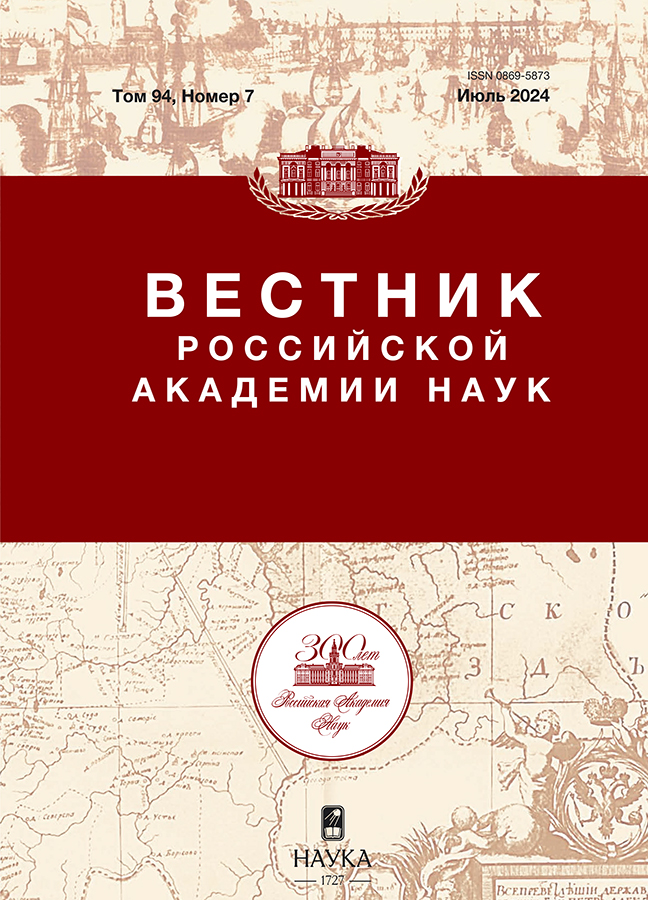Линии антагонизма в научном сообществе и отягчающий молодёжный фактор
- Авторы: Гусев А.Б.1, Юревич М.А.2
-
Учреждения:
- Социологическая служба “Решающий голос”
- Финансовый университет при Правительстве РФ
- Выпуск: Том 94, № 7 (2024)
- Страницы: 646-657
- Раздел: ТОЧКА ЗРЕНИЯ
- URL: https://journals.eco-vector.com/0869-5873/article/view/659774
- DOI: https://doi.org/10.31857/S0869587324070052
- EDN: https://elibrary.ru/FMLZHF
- ID: 659774
Цитировать
Полный текст
Аннотация
Работа посвящена анализу ключевых установок внутри научного сообщества, от которых напрямую зависит образ научно-технологического будущего России. Установлено, что цивилизационная само-идентификация исследователей в значительной степени не совпадает с настроениями широкой общественности. Осторожное, а нередко и скептическое отношение к мобилизации науки, усилившиеся эмиграционные настроения среди учёных, в первую очередь молодых, позволили авторам сделать вывод о кризисном состоянии научного сообщества страны, антагонистически разделённого противоречиями по основным ценностным ориентациям и управленческим вопросам. Объединяющим фактором служит потребность в комфортных условиях труда и востребованность науки государством и обществом.
Количественно определено, что только половина исследователей придерживается прогосударственных настроений и может быть потенциально с пользой задействована в решении научно-технических задач. Другая половина научного сообщества становится как минимум группой оппонентов, которые сомневаются или не определились в отношении научно-технологического курса. Молодёжное крыло науки, как оказалось, в значительной степени пронизано космополитизмом и поэтому не представляет собой антикризисную силу. Усиление мобилизационной готовности научного сообщества и разрешение его внутренней конфликтности рассматривается с точки зрения повышения качества управления наукой, включая эффективную кадровую политику.
Полный текст
Об авторах
Александр Борисович Гусев
Социологическая служба “Решающий голос”
Автор, ответственный за переписку.
Email: info@castingvote.ru
кандидат экономических наук, директор
Россия, МоскваМаксим Андреевич Юревич
Финансовый университет при Правительстве РФ
Email: mayurevich@fa.ru
кандидат экономических наук, научный сотрудник, Центр макроэкономических исследований
Россия, МоскваСписок литературы
- Gusev A.B., Yurevich M.A. Scientific and technological policy of Russia – 2022: a profession is not more expensive than the Motherland. M.: Pero, 2022. http://castingvote.ru/results/8
- Gusev A.B., Yurevich M.A., Nestik T.A., Zadorin I.V. Results of the sociological study “The Future of Russian Science: Academy and Knowledge-Intensive Industries”, autumn 2022. M.: Pero, 2022. http://castingvote.ru/results/9
- Gusev A.B., Yurevich M.A. Scientific and technological policy of Russia - 2023: overcoming the identity crisis. M.: Pero, 2024. http://castingvote.ru/results/10
- Gui Q., Liu C., Du D. Globalization of science and international scientific collaboration: A network perspective // Geoforum. 2019, vol. 105, pp. 1–12.
- Bunnell T.G., Coe N.M. Spaces and scales of innovation // Progress in Human geography. 2001, no. 4 (25), pp. 569–589.
- Jonkers K., Sachwald F. The dual impact of ‘excellent’ research on science and innovation: the case of Europe // Science and Public Policy. 2018, no. 2 (45), pp. 159–174.
- Balyshev A.V., Konnov V.I. Global science and national scientific cultures // International processes. 2016, no. 3 (14), pp. 96–111.
- Chen K., Zhang Y., Fu X. International research collaboration: An emerging domain of innovation studies? Research Policy. 2019, no. 1 (48), pp. 149–168.
- Marginson S. What drives global science? The four competing narratives // Studies in higher education. 2022, no. 8 (47), pp. 1566–1584.
- Marginson S. Global science and national comparisons: Beyond bibliometrics and scientometrics // Comparative Education. 2022, no. 2 (58), pp. 125–146.
- Ivanova N.I. Innovation policy: theory and practice // World economy and international relations. 2016, no. 1 (60), pp. 5–16.
- Aghion P., David P.A., Foray D. Science, technology and innovation for economic growth: linking policy research and practice in ‘STIG Systems’ // Research policy. 2009, no. 4 (38), pp. 681–693.
- Wagner C.S., Park H.W., Leydesdorff L. The continuing growth of global cooperation networks in research: A co-nundrum for national governments // PloS one. 2015, no. 7 (10), pp. e0131816.
- Ivanov V.V. Science reforms – a new vector // Economics of science. 2023, no. 1 (9), pp. 8–20.
- Simon M. Russian science and higher education in the context of globalization // Issues of education. 2014, no. 4, pp. 8–35.
- Yurevich A.V. On the problem of assessing the contribution of Russian socio-humanitarian science to the world // Herald of the Russian Academy of Sciences. 2011, no. 7 (81), pp. 613–621.
- Lenchuk E.B. Scientific and technological development as a strategic national priority of Russia // Economic revival of Russia. 2022, no. 1 (71), pp. 58–65.
- Lenchuk E.B. On the quality of public management of scientific and technological development // Economic revival of Russia. 2021, no. 1 (67), pp. 31–38.
- Chernysh M.F. Reform of Russian science as institutional design // Science management: theory and practice. 2020, no. 2 (2), pp. 47–64.
- Dezhina I.G. Science policy in Russia in 2018–2022: conflicting signals // Sociological Journal. 2023, no. 2, pp. 132–149.
- Vedomosti. How Putin discussed with scientists the translation of science into a practical plane. https://www.vedomosti.ru/politics/articles/2023/02/09/962272-kak-putin-obsuzhdal-perevod-nauki
- Russian newspaper. Valery Falkov spoke about the new system of higher education. https://rg.ru/2024/01/25/kliuch-ot-znanij.html
- Yurevich M.A. Scientific and technological development in the model of Juche socialism // Journal of Economic Regulation. 2023, no. 3 (14), pp. 6–15.
- Heshmati A., Dibaji S.M. Science, technology, and innovation status in Iran: main challenges // Science, Technology and Society. 2019, no. 3 (24), pp. 545–578.
- Danilin I.V. From technological sanctions to technological wars: the impact of the US-Chinese conflict on sanctions policy and high-tech markets // Journal of the New Economic Association. 2022, no. 3 (55), pp. 212–217.
- Zhang L., Sivertsen G. The new research assessment reform in China and its implementation // Towards a New Research Era. 2023, pp. 239–252.
- Poo M. New focus on basic research in China’s advancement in science and technology // National Science Review. 2022, no. 2 (9), pp. nwac014. https://doi.org/10.1093/nsr/nwac014
- Xu F., Li X. Review on reform of research evaluation in past decade // Bulletin of Chinese Academy of Sciences. 2022, № 5 (37), pp. 603-612.
- Cressey D. et al. Scientists say ‘no’ to UK exit from Europe in Nature poll // Nature. 2016, no. 7596 (531), pp. 559–559.
- Science|Business. Science|Business survey: Most European researchers support science sanctions on Russia. https://sciencebusiness.net/news/sciencebusiness-survey-most-european-researchers-support-science-sanctions-russia
- DG COMM’s Public Opinion Monitoring Unit. https://www.europarl.europa.eu/at-your-service/files/be-heard/eurobarometer/2022/public-opinion-on-the-war-in-ukraine/en-public-opinion-on-the-war-against-Ukraine-20230615.pdf
- Pew Research Center. Public and Scientists’ Views on Science and Society. https://www.pewresearch.org/internet/wp-content/uploads/sites/9/2015/01/PI_ScienceandSociety_Report_012915.pdf
- VTsIOM. About modern Russian patriotism. https://wciom.ru/analytical-reviews/analiticheskii-obzor/o-sovremennom-rossiiskom-patriotizme
Дополнительные файлы









